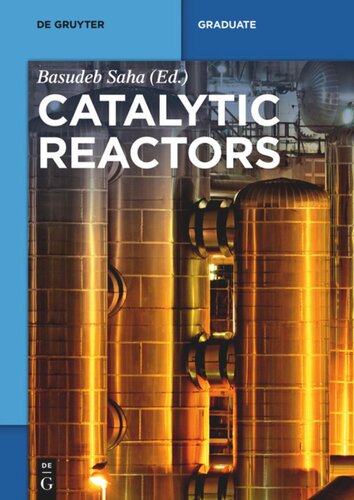

Most ebook files are in PDF format, so you can easily read them using various software such as Foxit Reader or directly on the Google Chrome browser.
Some ebook files are released by publishers in other formats such as .awz, .mobi, .epub, .fb2, etc. You may need to install specific software to read these formats on mobile/PC, such as Calibre.
Please read the tutorial at this link: https://ebookbell.com/faq
We offer FREE conversion to the popular formats you request; however, this may take some time. Therefore, right after payment, please email us, and we will try to provide the service as quickly as possible.
For some exceptional file formats or broken links (if any), please refrain from opening any disputes. Instead, email us first, and we will try to assist within a maximum of 6 hours.
EbookBell Team

4.8
14 reviewsCatalytic Reactors presents several key aspects of reactor design in Chemical and Process Engineering. Starting with the fundamental science across a broad interdisciplinary field, this graduate level textbook offers a concise overview on reactor and process design for students, scientists and practitioners new to the field.
This book aims to collate into a comprehensive and well-informed work of leading researchers from north America, western Europe and south-east Asia. The editor and international experts discuss state-of-the-art applications of multifunctional reactors, biocatalytic membrane reactors, micro-flow reactors, industrial catalytic reactors, micro trickle bed reactors and multiphase catalytic reactors. The use of catalytic reactor technology is essential for the economic viability of the chemical manufacturing industry. The importance of Chemical and Process Engineering and efficient design of reactors are another focus of the book. Especially the combination of advantages from both catalysis and chemical reaction technology for optimization and intensification as essential factors in the future development of reactors and processes are discussed. Furthermore, options that can drastically influence reaction processes, e.g. choice of catalysts, alternative reaction pathways, mass and heat transfer effects, flow regimes and inherent design of catalytic reactors are reviewed in detail.